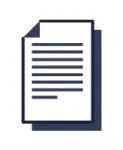| Titre : | Recall bias in self-reported melanoma risk factors. (2001) |
| Auteurs : | Myles COCKBURN ; A.N.N. HAMILTON ; Thomas MACK ; Department of Preventive Medicine. University of Southern California. Los Angeles. CA. USA |
| Type de document : | Article |
| Dans : | American journal of epidemiology (vol. 153, n° 10, 2001) |
| Pagination : | 1021-1026 |
| Langues: | Anglais |
| Mots-clés : | Biais ; Epidémiologie ; Facteur risque ; Méthodologie ; Homme ; Cancer |
| Résumé : | [BDSP. Notice produite par INIST 8j4JR0xI. Diffusion soumise à autorisation]. The evidence implicating sun exposure in the etiology of melanoma derives largely from case-control studies in which the retrospective assessment of sun exposure suggests potential for significant recall bias. Previous attempts at characterizing and quantifying that bias have had significant methodological limitations. In the International Twin Study, a case-control study of melanoma risk factors in twins conducted from 1980 to 1991, the authors asked melanoma cases and their co-twins to quantify their own exposures and asked which twin had the greater exposure. Recall bias was investigated by assuming that, if bias had occurred, the odds ratio based on the case's response would differ significantly from the odds ratio based on the co-twin's response. Case-derived odds ratios were higher than the odds ratios for the controls for sunbathing in childhood and adulthood and for mole frequency and freckling in childhood, suggesting some recall bias. The odds ratios for ease of burning and tanning appeared unbiased. The belief that sunlight was a cause of melanoma appeared related to an increased odds ratio for sunbathing as a child. There is a continuing need to carefully assess recall bias in the study of melanoma risk factors. |
Service Documentation EHESP
Me connecter
PORTAIL DOCUMENTAIRE
École des hautes études en santé publique
Catalogue
Multi-bases
Adresse
Service Documentation EHESPBibliothèque Rennes Avenue du Professeur Léon Bernard – CS 74312 – 35043 Rennes Cedex Bibliothèque MSSH Paris 20 avenue George Sand - 93210 La Plaine Saint-Denis
France
Bibliothèque Rennes : 02 99 02 29 50 Bibliothèque MSSH Paris : 02 99 02 24 50
contact


